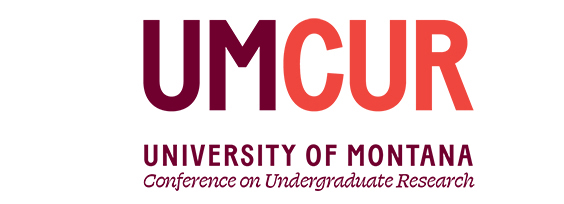Franke Global Leadership Initiative (GLI) Oral Presentations
Project Type
Presentation
Faculty Mentor’s Full Name
Frederick Peck
Faculty Mentor’s Department
Mathematics
Abstract / Artist's Statement
Title: Alienation as a Global and Local Issue
Purpose: We asked questions to determine if alienation is an issue that needs to be addressed and how to address it. With the help of our University of Montana campus and experts, we now better understand alienation as it exists and doesn’t exist on campus.
Methods: We analyzed data and responses collected from a survey advertised across campus, as well as conducted interviews with students and experts in the field of alienation.
Significance: Provide valuable information and data to empower our campus community to live in such a way that eradicates and prevents alienation.
Abstract:
As a group, we hoped to identify and research an issue that was widespread. We soon found through literature review, that a great burden affecting our society is the universal feeling of alienation. Alienation has long been a term used to describe workers’ thoughts toward their work, though the progression of society has transformed the term to hold a deeper context rooted in social and educational settings. Today it can be used synonymously alongside feelings such as powerlessness, meaninglessness, normlessness, isolation, and self-estrangement. It impacts everything including (but certainly not limited to) workforce participation, academic achievement, mental health, and our families on a global scale. With a topic that reaches so far, to every corner of our society, we decided to narrow our radius to that which is in reach. As students at the University of Montana, we want to use research on alienation to open a dialogue on our campus.
We conducted this project in a four-step approach: data collection, interviews, compilation, and finally, presentation. First, we conducted a campus-wide survey using the Euro Model of the Middleton alienation scale, modifying the questions to fit our campus atmosphere and population better. Second, we completed interviews with both UM students and experts from campus and the outer community. Third, we analyzed and compiled the information together. We examined how alienation is present on the UM campus and worked to formulate new ideas to either combat alienation or continue to preserve the inclusive community. And finally, we presented the findings to stakeholders so that they could review our findings and act accordingly to our recommendations in order to benefit our campus community.
Category
Franke Global Leadership Initiative
Alienation as a Global and Local Issue
UC 220
Title: Alienation as a Global and Local Issue
Purpose: We asked questions to determine if alienation is an issue that needs to be addressed and how to address it. With the help of our University of Montana campus and experts, we now better understand alienation as it exists and doesn’t exist on campus.
Methods: We analyzed data and responses collected from a survey advertised across campus, as well as conducted interviews with students and experts in the field of alienation.
Significance: Provide valuable information and data to empower our campus community to live in such a way that eradicates and prevents alienation.
Abstract:
As a group, we hoped to identify and research an issue that was widespread. We soon found through literature review, that a great burden affecting our society is the universal feeling of alienation. Alienation has long been a term used to describe workers’ thoughts toward their work, though the progression of society has transformed the term to hold a deeper context rooted in social and educational settings. Today it can be used synonymously alongside feelings such as powerlessness, meaninglessness, normlessness, isolation, and self-estrangement. It impacts everything including (but certainly not limited to) workforce participation, academic achievement, mental health, and our families on a global scale. With a topic that reaches so far, to every corner of our society, we decided to narrow our radius to that which is in reach. As students at the University of Montana, we want to use research on alienation to open a dialogue on our campus.
We conducted this project in a four-step approach: data collection, interviews, compilation, and finally, presentation. First, we conducted a campus-wide survey using the Euro Model of the Middleton alienation scale, modifying the questions to fit our campus atmosphere and population better. Second, we completed interviews with both UM students and experts from campus and the outer community. Third, we analyzed and compiled the information together. We examined how alienation is present on the UM campus and worked to formulate new ideas to either combat alienation or continue to preserve the inclusive community. And finally, we presented the findings to stakeholders so that they could review our findings and act accordingly to our recommendations in order to benefit our campus community.
